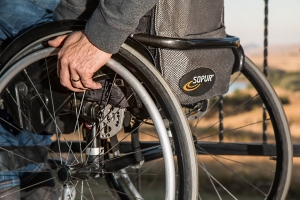Sick and elderly and sick inmates should be released from prison to free up cells, according to the Centre for Social Justice. The thinktank’s new report,
‘The Rehabilitation Revolution’, says measures including reducing prison recalls, releasing inmates serving indefinite imprisonment for public protection sentences and freeing offenders who pose no more than a minimal risk to the public could save as much as £246m per year. With the prison population still soaring and reports that morale among staff is low, bold action is clearly needed if the government is to achieve its goal of transforming prisons into “places of reform and rehabilitation”.
‘Opportunities for Genuinely Rehabilitative Work in Custody’
The Rehabilitation Revolution, by retired judge John Samuels QC and former cabinet minister Jonathan Aitken, says releasing inmates early could reduce pressure on the prison system and free up 7,000 much needed jail spaces.
The pair call for more prison officers and better pay and training, and argue that the prison system is failing to rehabilitate offenders, due to the “widespread erosion of morale across all areas of the criminal justice system”.
The prison population has almost doubled since the early ‘90s and has stood at roughly 85,000 in recent years.
The report’s proposed programme includes the following measures:
- Free up 3,300 prison spaces by avoiding unnecessary recalls of released inmates. (There were a record 21,559 recalls in 2016, most of which were for minor breaches.)
- Release 2,500 inmates who are serving indefinite imprisonment for public protection (IPP) sentences whose tariffs have
 expired and who can be released quickly and safely.
expired and who can be released quickly and safely. - Launch a programme for releasing inmates, overseen by a small number of judges, starting with prisoners serving IPP sentences and also including sick and elderly inmates who pose a minimal risk to the public.
- Set up pilot ‘problem-solving’ courts to address the addictions of the three per cent of offenders who commit 40 per cent of crime.
- Enable prison officers to play a greater role in rehabilitating inmates by improving their pay and training.
“It is our view that such a lowering of the numbers held in custody would assist with reducing overcrowding and mitigating the shortage of prison staff,” say the report’s authors.
“It would therefore aid in the creation of opportunities for genuinely rehabilitative work in custody: education, vocational training and addressing substance misuse would all be enhanced.”
Boosting Officer Recruitment and Reducing Reoffending
Prisons minister Sam Gyimah welcomed the CSJ report and said it highlighted a number of longstanding challenges.
“The work to make our prisons true places of reform and rehabilitation is already well under way, and will continue unabated,” he added.
“Prison officer recruitment numbers are at their highest since records began, a further 738 job offers have been made to potential recruits who are expected to start after June 2018 – giving a boost to the frontline.
“We are reforming probation and continue to work with Community Rehabilitation Companies to ensure they deliver probation services which reduce re-offending, protect the public and help offenders contribute to society.”

Keeping Prisoners and Families connected
References
http://www.bbc.co.uk/news/uk-politics-41254179